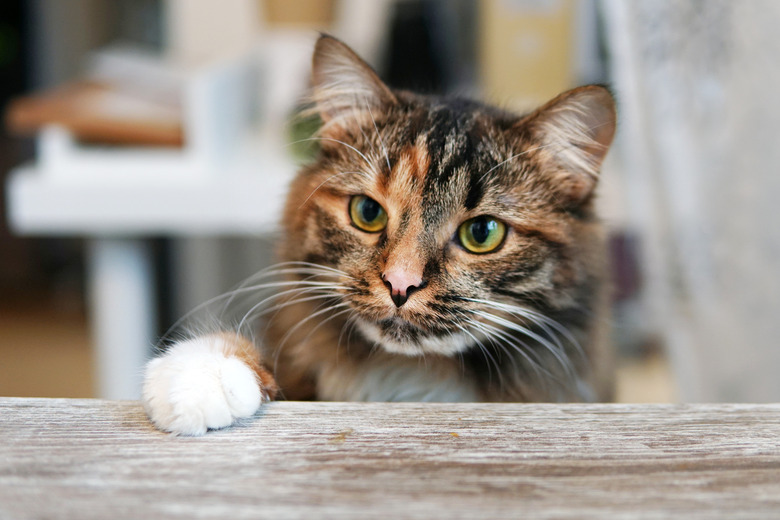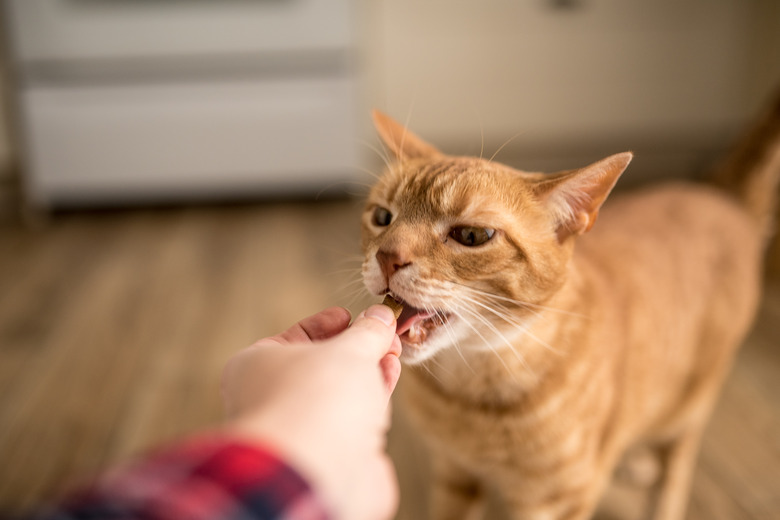Can Cats Eat Pork?
From jerky to bacon, pork is one of the most versatile meats, and it's included in countless recipes. With such a widespread presence in human diets, pet owners should know whether or not this salty delight is safe for their four-legged friends. Can cats eat pork? Yes, in moderation. Cats are obligate carnivores and huge fans of meaty treats. It's important, however, to know just how safe, or not, pork can be for cats.
Can cats eat pork?
Can cats eat pork?
Cats require meat in their diets and pork is a substantial source of protein. Can cats have pork? Yes, cats can eat pork, but they should only do so occasionally in small amounts at a time. Fat content is a concern.
Modern house cats aren't receiving copious amounts of exercise. Their days of hunting in the wild are behind them. Nowadays, pet cats tend to be sedentary and exert very little energy. Because of this, they need healthy diets to counterbalance their lack of movement. Although pork is safe for cats to eat and is non-toxic, this fatty, salty food does nothing for their figure or overall health.
Pork as cat treat
Pork as cat treat
Cats sleep an average of 12 to 18 hours a day, leaving them little time to burn off the excess fat that is found in pork. This fat, if eaten regularly, can clog your pet's arteries over time. This particular type of meat often comes with preservatives that are not healthy for anybody, especially the small, compact bodies of cats.
If your cat is in good health, pork products should serve only as an occasional treat. The meat should ideally be cooked to avoid parasites. If you are interested in giving your cat raw meats, including pork, be sure to do your research and consult with your veterinarian. Some pieces of pork, like ham, can be used in small amounts to hide medicine for your feline friend.
Alternatives to pork for cats
Alternatives to pork for cats
Fresh cuts of unprocessed pork without added salts and preservatives are a much better choice for your cat. These cuts of meat are preferable to a slice of salty bacon, for example, or pork from a human's plate that could be covered in harmful ingredients like onions, garlic, or other flavorings.
Consider feeding your cat leaner meats like fish or poultry. These meats are healthier alternatives that provide your pet with tons of protein without the extra salt, fat, and preservatives that are found in processed pork products. Hypertension, or high blood pressure, is becoming increasingly common in house pets. Some commercial pet foods, and pork, contain high levels of sodium, a leading contributor to hypertension.
Side effects of pork
Side effects of pork
Remember, as much as you want to see your kitty smile, you can always tell him "no" and properly regulate his treats. It's up to you as the owner to make sure your cat does not ingest excessive amounts of pork, risking obesity and high blood pressure. If you notice significant weight gain or digestive issues, including diarrhea, in your cat after ample pieces of pork, stop feeding the meat to your pet and consult your veterinarian for further suggestions and instructions.
Cats need meat to survive and, like humans, are sure to enjoy the salty, tasty treat that is pork. Just make sure pork only serves as an occasional treat. The meat should be cooked and preferably free of added salt and preservatives. If you're looking for healthier options for your cat, consider ditching the pork and sticking with leaner meats such as chicken or fish. In the end, kitty will thank you.

